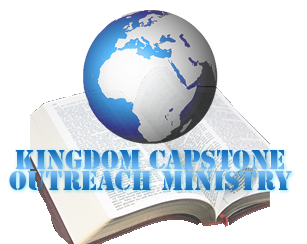You are here
MODEL OF IMPACTFUL LEADERSHIP (4)
“Then Moses pleaded with the Lord his God, and said: “Lord, why does Your wrath burn hot against Your people…?” – Exodus 32:11a
Moses’ response to Israel’s idolatry signify an empathic MODEL of IMPACTFUL LEADERSHIP: “Then Moses pleaded with the Lord his God, and said: “Lord, why does Your wrath burn hot against Your people whom You have brought out of the land of Egypt with great power and with a mighty hand?” (Exo.32:11). The Israelite’s performed infidelity to God while Moses was on Mount Sinai, receiving the Ten Commandments. After being freed from slavery in Egypt, the people were impatient with Moses’ prolonged stay on Mount Sinai, afraid that he would not return, and demanded “gods that shall go before us” (v.1).
Aaron, Moses’ brother, sensing the people’s unrest, responded by fashioning a golden calf from their gold jewelry, a symbol of their new deity, which the people began to worship, effectively abandoning their covenant with God (vv.2-4a). They declared: “This is your god, O Israel, that brought you out of the land of Egypt!” (v.4b). Aaron went as far as to build an altar before the idol and called for “a feast to the Lord” (v.5). This was the tragic picture of Idolatry: “Then they rose early on the next day, offered burnt offerings, and brought peace offerings; and the people sat down to eat and drink, and rose up to play” (v.6).
It was the Lord Himself that reported the evil transpiring in the camp to his servant: “Go, get down! For your people whom you brought out of the land of Egypt have corrupted themselves. They have turned aside quickly out of the way which I commanded them. They have made themselves a molded calf, and worshiped it and sacrificed to it, and said, ‘This is your god, O Israel, that brought you out of the land of Egypt!’” (vv.7b-8). He was ready to wipe out the people, but required Moses’ buy-in: “Now therefore, let Me alone, that My wrath may burn hot against them and I may consume them. And I will make of you a great nation” (v.10). Moses' responses however demonstrated powerful leadership, even in the face of the Israelites' disobedience.
Moses interceded on the people’s behalf, pleading with God to spare them, highlighting his deep concern for their welfare even when they were acting against God. His unselfish leadership prioritized the protection and welfare of those entrusted to him above power or personal gain, demonstrating empathy, compassion, and leadership by Love. He even invoked God’s covenant with Abraham, Isaac, and Israel (vv.11-13). Ultimately, God softened His judgement: “So the Lord relented from the harm which He said He would do to His people” (v.14). As a mediator between God and the Israelites, Moses bridged the gap between divine judgment and human failings. He acted as a bridge, ensuring God's justice was tempered with mercy.
Adetokunbo O. Ilesanmi (Meditations)
- Log in to post comments
Latest Tweets
No tweets to display now.
Our Vision
The vision of KCOM is that:
"the earth shall be filled with the knowledge of the Glory of the Lord as the waters cover the seas" (Habakkuk 2:14).
"But we all, with open face beholding as in a glass the Glory of the Lord, are changed into the same image from glory to glory even as by the Spirit of the Lord" (2 Corinthians 3:18).
Copyright © 2013–2026 Kingdom Capstone Outreach Ministry. | Designed by ZoeWox Technologies
